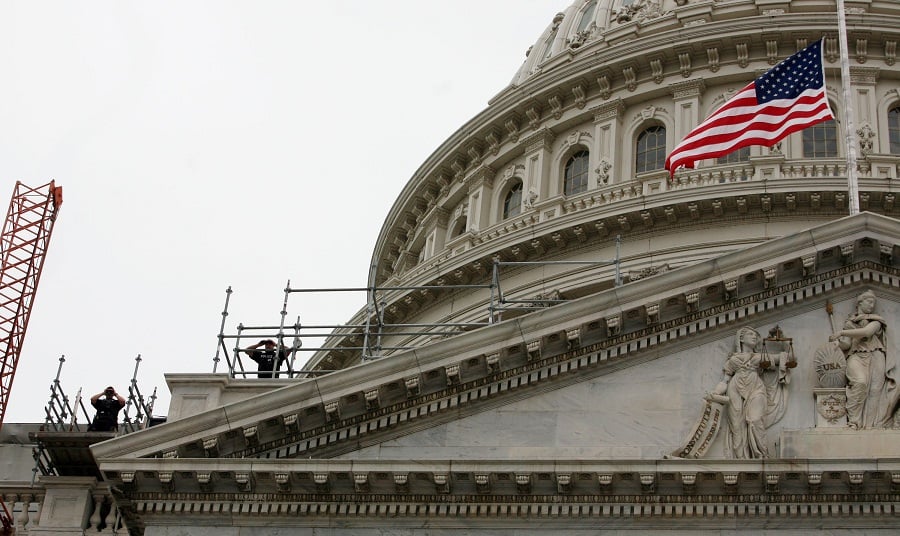A last-minute flurry of legislative efforts aimed at thwarting the Labor Department's controversial fiduciary rule are likely to fail — meaning implementation of a rule is a question of when, not if.
Speaking before a room filled with financial advisers at TD Ameritrade Institutional's national conference in Orlando, Fla., on Thursday, ERISA attorney Pam O'Rourke dashed any hope the DOL rule change — which would require all advisers overseeing assets in retirement plans to adhere to a strict fiduciary standard — can be stopped.
"You can plan it," said Ms. O'Rourke of Integrated Retirement, which provides retirement plan training to advisers. "Even if they get the votes, President Obama has made it clear that he will veto them and it's also very clear that their isn't sufficient votes to override that."
Two days earlier,
a House committee sent two bills that would halt a Labor Department fiduciary rule to the chamber floor without Democratic support.
The House Education and Workforce Committee approved the measures on party-line votes. It's not clear when the full House will take them up.
The House Ways and Means Committee also took up one of the two bills — the one that would amend the federal tax code — Wednesday, with only two Democrats supporting it. Those two lawmakers are original co-sponsors of the legislation: Reps. Richard Neal of Massachusetts and John Larson of Connecticut.
"Even though it has bipartisan sponsorship, and may pass the House, it is less likely to pass the Senate, and even if it does, the president will veto it," said Skip Schweiss, managing director for RIA advocacy and industry affairs at TD Ameritrade Institutional, in an email. "It's not really worth worrying about nor getting excited about, in my view."
Marilyn Mohrman-Gillis, managing director of public policy and communication for the CFP Board, agreed.
"The bills don't add meaningfully to the debate, other than to illustrate how crucial it is that the Labor Department's measure become law," she said. "These bills underscore the importance of the DOL fiduciary rule-making going into place because the bills reflect industry's interpretation that would undermine and not support true fiduciary of care.
NEW ADVICE STANDARD
Each of the bills would require Congress to approve the DOL rule — which requires advisers to act in the best interests of clients when advising on 401(k) and individual retirement accounts — before it goes into effect. In the likely event lawmakers fail to approve the DOL rule, it would be replaced with an advice standard drawn up in the bill, which includes a best-interests clause and disclosure of conflicts, compensation and fees.
Democrats said Congress should not pass legislation until the final DOL rule is released. Last Thursday, the Labor Department
sent the rule to the Office of Management and Budget for review, and is expected to make it public in March or April.
Even a Democrat who has expressed concerns about the regulation and has asked DOL to offer another comment period after the final rule comes out, opposed the bills to stop it.
'PREMATURE' BILL
“The timing just doesn't make sense,” said Rep. Jared Polis, D-Colo. “This bill is simply premature.”
Dozens of Democrats have signed letters to DOL asking for the rule to be modified. But they've also expressed hope that the
agency is listening and will revise the proposed rule before it becomes final.
Advocates say the fiduciary rule will stop the erosion of savings attributable to high-fee investments sold by brokers.
Opponents assert the rule would significantly increase brokers' liability risks and regulatory costs and force them to abandon investors with small accounts.
Rep. Bobby Scott, D-Va., ranking member of the House Education and Workforce Committee, said requiring affirmative congressional approval of a regulation is “constitutionally suspect.”
But Republicans asserted the DOL is running amok, and Congress needs to step in.
“The stakes are too high for Congress to sit back and do nothing,” said Rep. John Kline, R-Minn., chairman of the House Education and Workforce Committee.
This story was supplemented with reporting by Mark Schoeff Jr.







